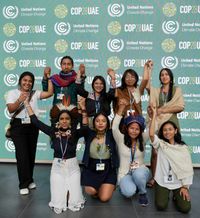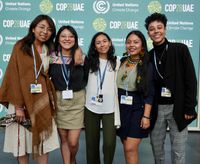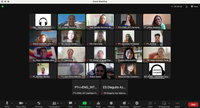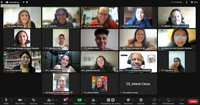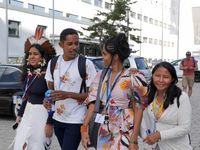Context
Young people in various parts of the world are actively involved in the effort to address the climate crisis, leading and participating in a multitude of initiatives at different levels. This strong commitment has motivated them to participate in international climate negotiations under the United Nations Framework Convention on Climate Change (UNFCCC).
While youth participation in the UNFCCC has been increasing, it still largely lacks equal representation of the origin and background of the young attendees. Consequently, the lack of representation of youth from the Global South, specifically from communities identifying as Black, Indigenous, and People of Color (BIPOC) at the high-level climate meetings perpetuates social injustice and neocolonial thinking in these spaces.
In recent years, we have seen growing support for the participation of underrepresented groups in international climate conferences. Therefore, at LAYCS we work to counteract financial barriers, the complexity of the UNFCCC negotiations, considering language barriers, in order to achieve meaningful participation and effective civil lobbying from the perspective of BIPOC youth.
Our agenda 2023
Our strategy
Our strategy
Selection Phase
Selection of young Latin American representatives from BIPOC communities through written applications and interviews. By 2023 we received 5,700 applications.
Virtual training phase
4 virtual sessions focused on presenting the project objectives, framing the project from an anti-racism perspective and expert-led thematic sessions on: Loss and damage, Global Goal on Adaptation and Global Stocktake. Training is also complemented by 10 pre-COP sessions.
Capacity building is completed with face-to-face sessions prior to the start of the conference.
Conference participation phase
The work teams were divided into three thematic groups. Daily sessions were held in which the group agenda and the purposes of the day were shared. The scholars participated in negotiations, side events, workshops, NGO meetings etc. with the help of four professional interpreters.
Community work phase related to each scholar's participation
The LAYCS project provides funds so that scholars have the opportunity to mainstream the results of their participation into their communities and in turn, collect inputs to feed their participation in the COP.
